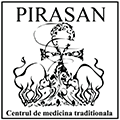Irritable bowel disease develops in 30% of the Earth’s population. It is characterized by persistent and serious constipation, diarrhea but also by spasms, pains, inflammations and aerocolia. In its more serious forms, there are mucus and blood discharges, and persistence of high body temperature.
Irritable bowel disease may also be caused bycandida, parasites and other microorganisms. Inflammation of the large intestine may also occur in a body that is hypersensitive to chemical substances.
At the same time, it is possible that the patient complain of decreased, even complete lack of appetite, of various forms of nervousness and depression. This disorder is known as anorexia. Symptoms of anorexia may occur 24-48 hours after the aliments have been ingested.
Intestinal malabsorption syndrome shows the body’s incapacity of assimilating the necessary nutrients. It is a thing caused by bad digestion. This disorder is characterized by the fact that, instead of going through the intestinal mucous tissue, the vitamins and the minerals are eliminated together with the residues.
Consequently, as the body is deprived of the necessary nutrients, many symptoms may occur, such as weakness, anemia, loss of appetite, loss of weight; the stomach is dilated; there are muscular spasms and pains in the osseous system.
Other factors that may trigger this disorder are stress, fear, indisposition but also stomach and intestinal surgery, and alcohol abuse.
Peptic ulcers may be acute or chronic. Frequently, there are no obvious symptoms in the acute ulcer, but chronic ulcers are both painful and profound. Depending on the affected area of digestive system, the ulcers are either gastric or duodenal.
Both types of ulcers are characterized by acute pains in the upper part of the abdomen. In gastric ulcer, pain occurs after food ingestion, and in duodenal ulcer it occurs on an empty stomach. The patient suffers the worst between meals and he wakes up at night because of pain.
Allopathic medicine associates ulcer with surplus of gastric acid and the presence of certain bacterias such as CAMPYLOBACTER and HELICOBACTER PYLORI.
The cases of ulcerative colitis are caused by an inflammation of the colon and rectum, organs that are often affected by food poisoning. In this disease, the patient complains of acute pains accompanied by blood, pus and mucous residues, meteorism, intestine inflammation , diarrhea, constipation, high fever, anemia, and loss of weight. Its complications are peripheral arthritis, ankylosing spondylosis, kidney and liver disorders and inflammation of the eyes, skin and mouth.
If treated inappropriately, the disease disappears for a short time, and then it relapses. Sometimes it’s parasites and bacteria that cause this disorder.
Modern medicine treats this class of diseases by antibiotics, vitamins and surgery. The disease is cured only for a short time.
The traditional medicine has treatment plans for each of the above described disorders, but also for each individual in particular, drawn according to the patient’s other affections, too, recipes containing over 130 medicinal herbs tested along time, which, in the treatment of each of the previously mentioned diseases have an immediate effect.
The treatment in the lightest forms of disease starts with an extract of 21 combined herbs. Depending on the disease there will be added as many herbs as necessary for the respective treatment. The traditional medicine doctor attends the patient until his or her full recovery.
At the same time he advises the patient about the foods that are not to be consumed and he decides upon the length of this interdiction. As part of the treatment, the physician advises the patient how to eliminate the parasites from the body, what a correct alimentation consists of (for example, he will teach the patient not to eat food cooked under pressure), how and especially when to drink water, how to treat the less chewable foodstuffs and many others .
The duration of the treatment for the above-mentioned diseases varies depending on the disorder, from short to extended periods of time; the purpose is patient’s complete healing.

